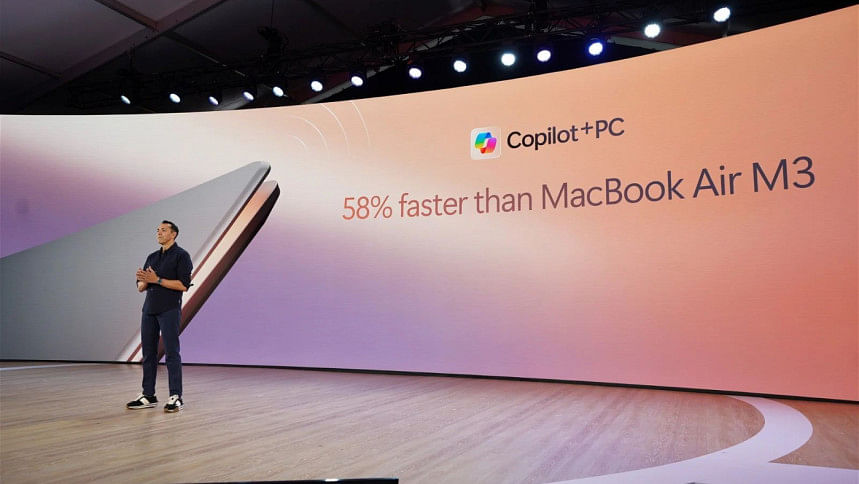AI-PCs, new laptops, and more: Everything Microsoft just announced

Ahead of its Build developer conference, Microsoft has unveiled significant advancements in AI and Surface technologies. At a pre-Build event on Monday, which was not livestreamed for the public, Microsoft introduced its vision for AI-centric PCs with the new Copilot+ PCs and announced the latest Surface devices.
Copilot+ PCs
The highlight of the event was the introduction of Copilot+ PCs, designed to handle generative AI processes locally rather than relying on cloud computing. These PCs require a neural processing unit (NPU) performance of at least 40 TOPs (trillions of operations per second), along with a minimum of 16GB RAM and 256GB storage. This approach echoes strategies seen in flagship smartphones like Google Pixel devices.
Microsoft has redesigned the Windows PC infrastructure to integrate the CPU, GPU, and NPU, collaborating with AMD, Intel, Qualcomm, and various laptop manufacturers. According to Microsoft, Copilot+ PCs are 58% faster than the M3-powered MacBook Air, capable of running multiple small language models locally to power features like a new standalone Copilot app.
Copilot+ features
A notable feature of Copilot+ PCs is Recall, allowing users to find past activities on their PC using natural language prompts. This tool can search emails, documents, and chat threads, ensuring data remains on the device.
Additionally, Copilot is getting a revamped app, usable as a sidebar, standalone window, or fullscreen. Users can drag items into Copilot for context-specific assistance. Microsoft Paint now includes Cocreator for image generation, while Live Captions will translate languages in real-time, and Super Resolution will enhance image restoration in Windows Photos. Microsoft also introduced Auto Super Resolution for gaming, similar to NVIDIA's DLSS, aiming to upscale graphics and improve refresh rates without compromising performance.
New Surface models
Microsoft also unveiled new consumer-focused Surface devices, marking the first among Copilot+ PCs. The latest Surface Laptop features thinner bezels and Qualcomm's Snapdragon X Elite chipset, available in 13.8-inch and 15-inch sizes. The laptop is claimed to be over 86% faster than the Surface Laptop 5, offering up to 32GB of RAM and 1TB of SSD storage. The 15-inch model promises up to 22 hours of local video playback and 15 hours of web browsing on a single charge. The Surface Laptop starts at $999 and will be available from 18 June.
The Surface Pro now includes an OLED display option, reportedly 90% faster than its predecessor, with up to 14 hours of local video playback per charge. The LCD version starts at $1,000, while the OLED model begins at $1,500. However, users will need to purchase a physical keyboard separately, with the new Flex Keyboard priced at $350, or $450 with a Surface Pen bundle.
Third-party laptops: expanding the Copilot+ ecosystem
Several third-party OEMs are joining the Copilot+ initiative, including Samsung, ASUS, Lenovo, Acer, and Dell. HP introduced the Omnibook X and Elitebook Ultra, with the Omnibook X featuring Snapdragon X Elite and a battery life of up to 26 hours for local video playback. The Omnibook X starts at $1,200, while the Elitebook Ultra is priced from $1,700. Both models will ship on 18 June.
Windows 11: redesigned for Arm and AI
With Qualcomm's Arm architecture, Microsoft is enhancing Windows 11 to better support AI and efficiency. Windows 11 now includes AI APIs, a new kernel and compiler, and an emulator called Prism to run x86 and x64 apps, which is 20% faster than previous emulators. Key third-party apps like Chrome, Spotify, Zoom, and Adobe software will run natively on Arm-based Windows 11.

 For all latest news, follow The Daily Star's Google News channel.
For all latest news, follow The Daily Star's Google News channel. 



Comments